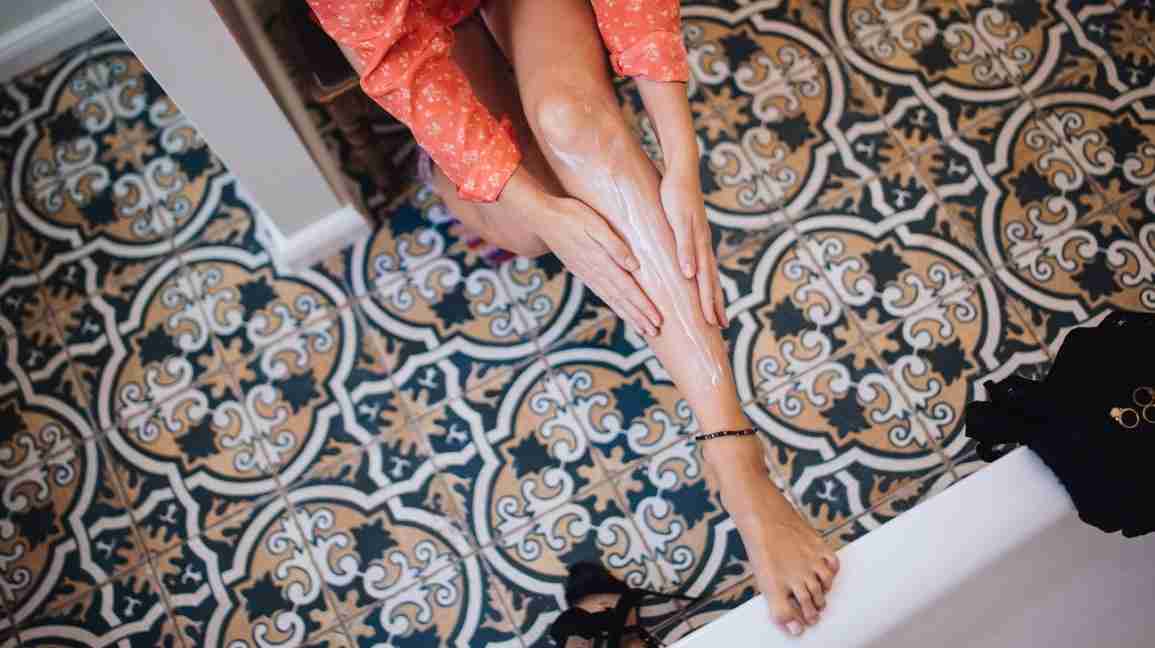
- Staying inside for long periods of time can have effects on your skin.
- Dry air, stress, and a change in skincare routine can all disrupt your skin health.
- Mild soaps, moisturizers, and do-it-yourself facials can help keep your skin healthy.
All data and statistics are based on publicly available data at the time of publication. Some information may be out of date.
Physical distancing affects many aspects of our lives — and our skin may be feeling it, too.
“The air inside is often drier than the air outside — we have the heater on and the air is being recirculated. Drier air leads to drier skin, so it’s common to have eczema or other dry skin rashes get worse when stuck indoors for increased amounts of time,” Dr. Sandra Lee, (aka Dr. Pimple Popper), told Healthcare Website.
Focusing on cleanliness also plays a part, said Dr. Adam Friedman, professor of dermatology at George Washington School of Medicine and Health Sciences.
“Certainly, during this time when we are frequently washing our hands, bathing, and cleaning, these actions can take a toll on the skin barrier, altering the skin pH and disrupting the complex fat and carbohydrate composite that is the outer barrier of the skin,” Friedman told Healthcare Website.
Disruption to your skincare routine can also wreak havoc, added Lucy Xu, skin specialist and founder of The London Premier Laser and Skin Clinics.
“It may also be due to touching our face a lot more. When we are inside and not wearing any makeup or having any social activity, we may be more inclined to touch or pick our face when no one is looking. This could cause our skin to become inflamed and [promote] acne and pimples,” Xu told Healthcare Website.
The stress of the pandemic may show on your skin.
“The relationship between mind and skin is essential and undeniable. From their common embryologic origin, the nervous system and skin remain interconnected and communicate throughout life. The skin is the first interface between environment, body, and mind from the moment we are born,” Friedman said.
In fact, he said the skin is integrated with and sensitive to the same signals and regulatory mechanisms produced by the hypothalamic-pituitary-adrenal (HPA) axis, which is the master regulator of our nervous systems.
“Therefore, it should be no big surprise that when stress induces the activation of the HPA axis, resulting in the production and release of key stress hormones, this can have a huge impact on the skin,” said Friedman.
He explained that when these signals bind to their targets on skin cells or immune cells, they can directly impact the functionality of the skin by impacting cell turnover and movement, and mess with the activation of the immune response, causing chronic inflammation.
“Therefore, while diseases that are defined by chronic inflammation and impaired barrier function will no doubt be exacerbated by the stress response, all skin suffers from this impact of stress,” said Friedman.
While everyone deals with stress and anxiety differently, Lee said habits can affect your skin.
“Some of us eat, some drink, some exercise, and some people pick at their skin (oftentimes, not even realizing it, deep in thought). Touching your skin constantly and picking at it can also definitely exacerbate skin conditions or create irritation. The goal is to try to break that habit. Cover the area with a Band-Aid, or better yet, a spot treatment, and stay true to your skincare regimen,” said Lee.
While many people believe greasy foods lead to breakouts, Lee said that’s only true if you’re rubbing grease directly on your face.
However, she pointed out that dairy can be an exacerbating factor when it comes to acne because of elevated hormones in milk.
“We know that changes in our own hormone levels do play a big role in acne, so if you know you’re especially sensitive, try your best to not eat a ton of cheese or dairy products,” she said.
Friedman agreed, noting that much of what’s known about diet and skin comes from the impact that poor diet has on primary skin diseases like acne.
“We certainly have enough evidence to support that eating poorly can worsen acne and have other effects on the body. Most [studies] suggest that high glycemic load diets and milk/dairy consumption might promote the development or exacerbation of acne vulgaris,” he said.
In addition to self-care measures, such as eating a well-balanced diet, exercising, and getting enough sleep, the following tips can help protect your skin during quarantine:
1. Use mild soaps
When bathing or washing your face or hands, use mild soaps.
2. Apply a moisturizer cream or ointment to damp skin after bathing
“Try your best to minimize cranking up the heat and have a good moisturizer on hand or a serum with hyaluronic acid for extra hydration. I use Daily Moisturizer with SPF 15 and Hyaluronic Acid Serum from my line, SLMD Skincare,” said Lee.
3. Use serums and retinols
“You will likely be increasing your screen time due to being inside, so ensuring you protect your skin against harmful blue light is imperative,” said Xu.
“I would suggest wearing a daily UV cream even if you’re not heading outside as this could help prevent damage, as well as a topical antioxidant serum or cream, [which] will work to fight against this type of blue light. I would opt for vitamin C,” she said.
4. Get an acne treatment
If stress is causing you to break out and you can’t see your dermatologist for acne during the pandemic, Lee said to have acne treatment delivered to you.
“It’s good to have hydrocortisone cream, an antifungal cream, and an antibiotic cream as well. If you have these three, you can potentially clear up many causes of skin rashes and irritations,” she said.
5. Apply sunscreen SPF 30, broad spectrum
When you head outside for fresh air, no matter the temperature, Friedman said apply SPF 30 to exposed areas of your skin.
“Many moisturizers [have] UV filters, so kill two numbers with one action. UV radiation can cause many immediate and delayed detrimental changes to the skin,” he said.
6. Stick to your usual skincare products
Lee said it’s important to stick to products you’ve already used.
“Routine is not only good for your skin (introducing new products at this time can sometimes cause trouble, especially if you get a reaction), but routine is also good for the psyche. It’s great to simplify things, too,” she said.
7. Give yourself a facial
Since you can’t make it to the spa for a facial, Xu said to give yourself one at home. Here are a few she recommends:
Exfoliation facial
Good exfoliation removes the dead skin cells clogging the skin and reveals new cells below, Xu said.
“And more importantly, good exfoliation opens the way for your skin masks, moisturizers, or other beauty products to penetrate your skin more deeply. And you can benefit more from your beauty treatment,” she said.
To exfoliate your face, mix:
- honey
- sugar
“Exfoliate your skin with this mixture and wash off with lukewarm water,” Xu said.
Hydration facial
If your skin is hydrated, Xu said it will look more plump and youthful.
“Hydration also helps your skin to improve elasticity which reduces the appearance of wrinkles. Dehydrated skin produces more oil due to lack of moisture, which leads to many skin problems,” she said.
Plus, when your skin is fully hydrated, she said it can flush out toxins more effectively.
Ingredients for a skin hydration mask include:
- 1/2 avocado
- cocoa powder
- honey
Mash the avocado and mix with the rest of the ingredients. Leave the mask on for 10 to 15 minutes and remove mask with warm water.
Facial for acne-prone skin
Acne occurs when the pores of the skin get blocked with oil, dead skin, or bacteria. To make a face mask to help your acne, Xu said to mix the following until they have a smooth texture:
- aspirin (5 tablets crushed)
- 1 tbsp. honey
Apply the mixture to your face and leave it on for 10 minutes. Massage your face before rinsing off the mask with water.


